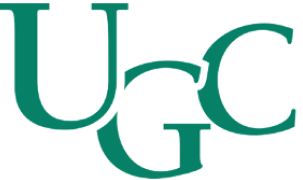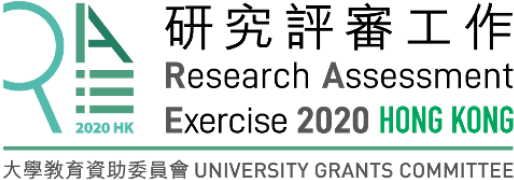Unit of Assessment:
Research categories:
?Chemistry
Chemistry, Physical (4)
Environment/Ecology
Environmental Sciences (1)
Materials Science
Materials Science, Multidisciplinary (2)
Impact locations:
?Asia
Hong Kong, China (2), China (Mainland China) (1), Tuen Mun (1)
Europe
Geneva (1), Sundan (1)
North America
Canada (1), United States (1)
Case Study
Establishing New Methods for Accessing Mesoporous TiO? Thin Films with Higher Photocatalytic and Antibacterial Activities
1. Summary of the impact
A novel technology for the fabrication of mesoporous Titanium Dioxide (TiO2) thin films was established by Prof. Jimmy Yu’s team. This patented technology has been commercialized as NanoPCO™ and licensed to a local company to launch new products under the trade name of Nano-Fotocide™ since 2002. The technology has also been granted to AYKOW to launch TiO2-purification systems since 2015, which were sold to 3500 overseas clients. This technology was transferred to and exploited by a start-up company in Hong Kong since 2019. The team has also aroused public awareness about photocatalytic purification via media interviews and exhibitions.
2. Underpinning research
Conventional disinfection treatment such as chlorination and ozonation may generate detrimental by-products; while ineffective UV disinfection may lead to the rise of UV-resistant bacterial strain. Upon the irradiation by sunlight or UV light, titanium dioxide (TiO2) is a desirable photo-oxidative catalyst for solving air pollution and promoting urban air quality due to: (i) low production cost; (ii) high oxidative efficiency at room temperature; (iii) sustainable photocatalytic effect without consumption of material. However, conventional methods for the preparation of a TiO2 thin film on a substrate, exhibit very poor photocatalytic and antibacterial activities because of poor crystallinity, small surface area, and low anatase content.
In 2002, the research team led by Prof. Jimmy Yu (Professor, Department of Chemistry, CUHK [1995-]) developed a novel modified sol-gel method to fabricate the TiO2 thin films with better crystallinity, larger surface area, and higher anatase content [3.1-3.2]. The publication on the Chemistry of Materials was admitted to the journal’s 1k Club series having been cited over 1466 times. Yu’s team discovered that when TiO2 materials doped with fluoride ions could enhance the photocatalytic oxidation of acetone, up to 39% higher than that of a well-recognized and commercially available TiO2 material [3.2]. The new TiO2 film also exhibited high photocatalytic activity by degrading 30% of a dye in 40 mins [3.1]. The air purification efficacy of the new TiO2 film was investigated that photocatalytic activities were enhanced to degrade common indoor pollutants such as nitric oxide and groups of VOCs [3.3]. TiO2 thin films produced by this method demonstrated significant bactericidal activity, with remarkable oxidizing species generated from the absorption of the UV light, killing over 90% of bacterial cells after 50 mins [3.4, 3.5]. The surface thickness of the films was found to be 0.17 mm and the glass transmittance is about 90% over the visible light spectral region allowing the absorption of UV light and thus promoting bactericidal activities. The surface morphology of the thin films displayed a characteristic granular microstructure that show a larger surface area when compared to conventional TiO2 films. The average crystallite size of the films was found to be 7.2 nm in which it indicates better crystallinity. These unique features significantly enhanced the antibacterial activities of the new TiO2 thin films. Prof. Yu received the State Natural Science Second-class Award in 2005 as the recognition of his research on TiO2 fabrication.
EcoTech and AYKOW have been licensed for developing purification products based on TiO2 technology of Yu’s team (detailed in Section 4). Titanology, a start-up company found in 2017, was awarded the Technology Start-up Support Scheme (TSSSU) 2018/19 for HKD 0.5M, with Prof. Yu as a consultant, to exploit his TiO2 technology to a wide range of daily-life disinfection application (detailed in Section 4). Overall, this ground-breaking research has led to about 100 SCI peer-reviewed publications and have received over $30M of research funding from CUHK, Research Grants Council (RGC), Innovation and Technology Commission (ITC), and National Natural Science Foundation of China-Hong Kong Research Grants Council, etc.
3. References to the research
[3.1] Jimmy C Yu, Hung Yuk Tang, Jiaguo Yu, H.C Chan, Lizhi Zhang, Yinde Xie, H Wang, S.P Wong. “Bactericidal and photocatalytic activities of TiO2 thin films prepared by sol–gel and reverse micelle methods.” Journal of Photochemistry and Photobiology A: Chemistry, Volume 153, Issues 1–3, 2002, Pages 211-19.
[3.2] Jia-Guo Yu, Jimmy C Yu, Bei Cheng, S.K. Hark, Kwansai Iu. "Effects of F— Doping on the Photocatalytic Activity and Microstructures of Nanocrystalline TiO2 Powders.” Chemistry of Materials, Volume 14, Issue 9, 2002, Pages 3808-16.
[3.3] C.H. Ao, S.C. Lee, Jimmy C. Yu. “Photocatalyst TiO2 supported on glass fiber for indoor air purification: effect of NO on the photodegradation of CO and NO2.” Journal of Photochemistry and Photobiology A: Chemistry, Volume 156, Issues 1–3, 2003, Pages 171-77.
[3.4] Dieqing Zhang, Guisheng Li, Jimmy C. Yu, "Inorganic Materials for Photocatalytic Water Disinfection," Journal of Materials Chemistry 2010, Volume 20, Pages 4529-36.
[3.5] Wanjun Wang, Guocheng Huang, Jimmy C. Yu, Po Keung Wong. Advances in photocatalytic disinfection of bacteria: Development of photocatalysts and mechanisms. Journal of Environmental Sciences, Volume 34, 2015, Pages 232-47.
4. Details of the impact
The novel TiO2 fabrication technology from Yu’s team by pinpointing a key role of anions in the structure, has opened new opportunities in safe and effective photocatalytic water disinfection and air purification for solving the related broad spectrum of energy and environmental problems. These innovations have been commercialized and previously licensed to industries, leading to the following impacts:
Impact on the economy:
From research to commercialization
The research team registered a trademark, NanoPCO™ and licensed to a local company, EnvironmentalCare Limited (HK) (Renamed as EcoTech Environmental) to launch new products for air and water treatment systems under the trade name of Nano-Fotocide™ since 2002. The products have received the Chinese Manufacturers' Association of Hong Kong Merit Award in machinery and equipment design by in 2002, 2003, and 2004 [5.1].
Industrial collaboration
Three patents have been granted to Yu’s research on TiO2 since 2004 [5.2]. Particularly noteworthy is that two of these patents [5.2 (i), (ii)] have been licensed to a multi-national company, AYKOW, in a non-exclusive license deal in 2015. The company has incorporated the science output from these patents and designed a series of new generation antibacterial air filtration systems for society (e.g. at home, hospitals and offices). Products have been sold in Europe, China and North America to 3,500 clients through distributors such as Carrefour, Sundan, Boulanger, Leroy Merlin, etc. The efficacy and the advancement of Yu’s technology has been appreciated, “The technology we proposed has no real competitor for mass market…..Thank our technology based on our invention we were the only product offering a real efficiency on gas like formaldehyde without generating any health risk — no ozone or dangerous free radical….Large companies in Europe and North America shown their interest in this technology for public transport as Bombardier in Canada and Alstom in France.” [5.3]
In 2016, two college students, Wong Sum-ming and Li Kin-pong won a gold medal at the 44th International Exhibition of Inventions of Geneva for a self-disinfecting door handle which deploys Yu’s TiO2 fabrication technology. Yu’s research directly exerted economic impacts through the establishment of a start-up company, Titanology, founded by Wong and Li in 2017. The company, with Prof. Yu as a consultant, was supported by TSSSU 2018/19 for HKD0.5M [5.4]. Recently in March 2019, Yu’s mesoporous TiO2 technology was officially licensed to Titanology for developing genuine local applications of photocatalytic self-sanitizing products. The company has become Tech Trend Winner in Elevator Pitch Competition 2018 and won Jame Dyson Award in 2019. Yu’s technology delivered tremendous impact to the company development, as said by the Director of Titanology, "We developed our products based on your technology. We also built up a laboratory in Tuen Mun and finalized our prototype of the self-sanitizing door handle. Currently, our company is going to launch our products in the market with several orders from the government organizations, private hospitals and some local schools. More importantly, we will collaborate with the Hospital Authority [5.5]”
Impact on improving professional standard
This scientific research has advanced the fundamental knowledge towards genuine application of photocatalysis in which it was not a mainstream research field when the first seminal paper was published. The publication [3.2] on the Chemistry of Materials was admitted to the journal’s 1k Club series having been cited over 1466 times. The journal has published an editorial interview to describe the impact of Prof. Yu’s research on TiO2.
Impact on public welfare and education
Prof. Yu has actively engaged in communications to the public. He had been invited to exhibit his research work on innovation of TiO2 fabrication and its photocatalytic application in a featured exhibition at HK Science Museum in 2004 and InnoCarnival 2018 [5.6]. Yu’s research work achieved an extensive reach of audiences. The journal [3.5] has been referenced by a popular science website, ScienceAlert in 2019, with over 9 million fans on its Facebook page [5.7]. Prof. Yu was interviewed by a local newspaper, Wen Wei Po on his research and College administration in 2012. His story was also reported on various media, including “Brand Hong Kong” and Singtao Daily USA in 2018 [5.8]. Thomson Reuters had listed Prof. Yu among the “World's Most Influential Scientific Minds 2014” [5.9]. All these activities aroused public awareness about the significance of developing effective photocatalytic purification systems via exhibitions and media interview.
5. Sources to corroborate the impact
[5.1] Chinese Manufacturers' Association of Hong Kong Merit Award in machinery and equipment design (2002, 2003, 2004)
[5.2] Patents generated from Yu’s TiO2 research
(i) "Method for preparing mesoporous TiO2 thin films with high photocatalytic and antibacterial activities," (Granted in 2004) US 6803077, ZL 02119304.5, AU 2003229253, CA 2480736, DE 10392572, HK 1060257, WO 2003092886;
(ii) "Photocatalytic nano-crystalline TiO2 thin films, method for preparing the same and use thereof," (Granted in 2009) US 7638555, ZL 02147089.8, HK 1061540;
(iii) “Optically transparent TiO2 thin films on glass having anti-bacterial and anti-virus activities and method for preparing the same,” (Granted in 2004) CN 1245348C, WO2004062795A1, HK1063620A1
[5.3] A testimonial from AYKOW (2019)
[5.4] TSSSU 18/19 awarded to Titanology (2018)
[5.5] A testimonial from Titanology (2019)
[5.6] Exhibition records for Yu’s research (2004, 2018)
[5.7] Citation record of featured review on water disinfection by ScienceAlert (2019)
[5.8] News reports on Prof. Yu [Brand Hong Kong; Singtao Daily USA] (2018)
[5.9] “World's Most Influential Scientific Minds 2014”, Thomson Reuters (2014)

